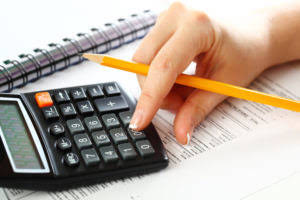
As is clear from the definition, the value of equipment or machinery after its useful life is termed the salvage value. Simply put, when we deduct the depreciation of the machinery from its original cost, we get the salvage value. For example, an engine from a low-mileage vehicle in excellent condition may have a higher value than one from a high-mileage vehicle with a history of maintenance issues.
Calculating the ACV
- If your car is irreparable or the cost to repair your car is close to the value of the car, it’s possible that it will be deemed a total loss.
- The company purchased the asset for a total basis of $51,000 and is projected to net $9,000 upon its eventual disposal, resulting in a total cost to the business of $42,000.
- Salvage value is also known as scrap value or residual value and is used when determining the annual depreciation expense of an asset.
- While you might be able to get your insurer to increase the salvage value of your car, it likely won’t be enough to cover a new vehicle purchase.
- It is the value a company expects in return for selling or sharing the asset at the end of its life.
- Common reusable parts include engines, transmissions, body panels, wheels, and interior components.
This concept helps companies plan for the end of an asset’s useful life by estimating its residual worth, aiding in asset management and disposal decisions. If you want to get the best salvage car quote, head to DamagedCars.com. We look at more than just the year, make, and model of your vehicle to maximize your offer. But you still want to sell your damaged car for the real price of your vehicle, fast. And a car with a salvage title’s value is subject to the few willing Certified Public Accountant to buy it, and what they will pay. If you have a totaled vehicle, you might be wondering why it would make sense to keep it when it has such extensive damage.
Vehicle Age and Condition
- The easiest way is to multiply the ACV by 0.25 or 25% to determine the salvage value.
- As the salvage value is extremely minimal, the organizations may depreciate their assets to $0.
- Before getting deeper, let’s first understand what salvage value is and how it is calculated.
- This method involves estimating the cost of repairs and subtracting that amount from the vehicle’s market value.
- We look at tons of factors so that we don’t miss anything that could increase your vehicle’s value.
- DamagedCars.com is the top choice for obtaining fair market value for your damaged car.
The majority of companies assume the residual value of an asset at the end of its useful life is zero, which maximizes the depreciation expense (and tax benefits). The difference between the asset purchase price and the salvage (residual) value is the total depreciable amount. When an asset or a good is sold off, its selling price is the salvage value if tax is not deducted then this is called the before tax salvage value. The car salvage value calculator is going to find the salvage value of the car on the basis of the yearly depreciation value. One significant factor is the extent of damage sustained by the vehicle.
Step 1: Determine Initial Cost

We provide instant cash offers and free pick up your damaged vehicle in as little as hours. You’re essentially buying your salvage car from the insurance company. If the asset is sold for less than its book value then the difference in cost will be recorded as the loss of the tax values. In this situation, the salvage values calculated are less than the book value. You can find the asset’s original price if the salvage price and the depreciation rate are known to you with the salvage calculator. Enter the original value, depreciation rate, and age of the asset into the tool to calculate its salvage value.

Can I negotiate the salvage value of my vehicle with my insurance company?
If you plan to dismantle the vehicle yourself, ensure you have the necessary tools and knowledge to do so efficiently. A well-organized dismantling process can save time and effort, making the salvage process more streamlined. This isn’t just the purchase price—don’t forget to include things like installation costs as well.
- This tool helps you make informed decisions before selling or scrapping your vehicle to get the best possible offer.
- Conversely, if the sale price is lower than the adjusted tax basis, the difference may be deductible as an ordinary loss, depending on the asset’s classification.
- We maintain strict editorial independence to ensure unbiased coverage of the insurance industry.
- This is because when the auto insurance company keeps the vehicle, they pay you for the pre-accident value of the car minus your deductible.
- These buyers generally pay much more than dealerships because they are genuinely interested in your vehicle or its parts.
Make and Model
Subtract this depreciation amount from the current market value to get an estimate of your car’s present worth. If you are unhappy with the value you are presented, you can discuss that with your agent. If you can prove why you think the value should be higher such as modifications, accessories, or lower than average mileage, you can often get a higher valuation in your favor. If a major component is discontinued and unavailable aftermarket or used, your car may be deemed a total loss at a much lower percentage. Determining the salvage value of an asset requires an understanding of various financial and market factors.

What is the salvage value of a vehicle?
The salvage value calculator evaluates the salvage value of an asset on the basis of the depreciation rate and the number of years. The salvage value is calculated to know the expected value or resale value of an asset over its useful life. This method involves estimating the vehicle’s market value before the damage occurred and then applying a percentage to determine the salvage value. For example, if a vehicle’s market value was $20,000 and the salvage value is estimated to be 20% of Budgeting for Nonprofits that value, the salvage value would be $4,000. Options include online auction websites, classified ads, or direct sales to salvage yards.
Step 5: Determine the Salvage Value
Upon doing so, you will have an estimation of the value of the salvage vehicle you’re considering. If you’re buying the vehicle to acquire parts for repair, the car salvage price may be justified by the value of its components. If you’re looking at rebuilt title cars for personal use, consider the cost of repairs and safety inspections before you dive into a purchase. The local market conditions, including demand and supply trends, can cause fluctuations in the resale price of salvage vehicles. In areas where salvage vehicles are increasingly sought after for repairs or parts, prices may be higher. The other salvage value option you can get is to stick up with your salvage car and sell it to private companies that buy damaged cars.

A reputable repair facility can often get you a fair assessment of the value of the vehicle, as well as any issues with the repairs, as well. Consider factors such as the car’s make, model, year, and overall condition. Utilize tools like online valuation calculators or consult with professional appraisers to understand the market value and how salvage title impacts it. A well-documented repair history can enhance confidence among potential buyers about the integrity and safety of the vehicle, positively influencing its valuation. Buyers are more inclined to purchase a salvage vehicle that has undergone thorough repairs and has been certified roadworthy.


